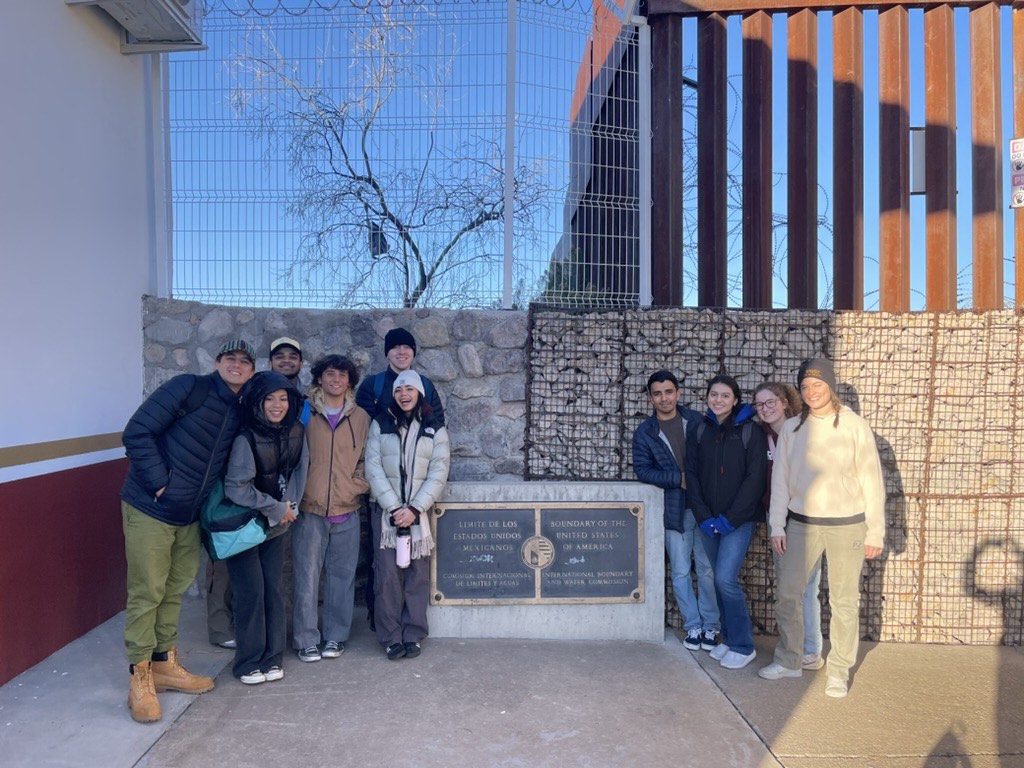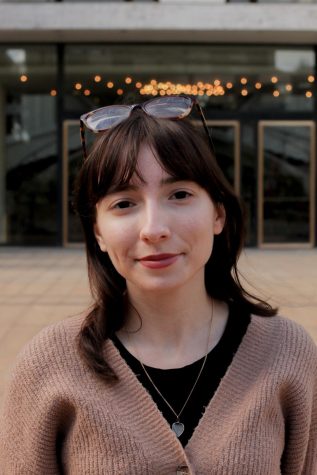A group of seven Fordham professors across disciplines — Gregory Donovan, Leo Guardado, Annika Hinze, Carey Kasten, Sarah Lockhart, Jim McCartin and Alma Rodenas-Ruano — are working to ensure that migrants are not alone.
The professors were awarded a $670,000 grant from the Cummings Foundation, a Massachusetts non-profit. They plan to use the money to expand efforts to accompany, support and advocate for migrant communities in New York City and at the U.S.-Mexico border.
The Cummings grant continues the 2022 Initiative on Migrants, Migration and Human Dignity sponsoring student, faculty and staff engagement with migration. Carey Kasten, associate professor of Spanish, wrote that the new grant will fulfill the project’s five goals: cultivating student leaders who are prepared to address complex challenges, supporting the Fordham community in accompaniment, supporting faculty and student research that serves migrant communities, and functioning as a model in migration accompaniment for other Jesuit institutions.
Donovan, an affiliate professor in the Urban Studies and New Media & Digital Design programs, wrote in an email that the grant combines the ongoing work of various departments.
The Cummings grant continues the 2022 Initiative on Migrants, Migration and Human Dignity sponsoring student, faculty and staff engagement with migration.
“This grant is an opportunity to create a hub for bringing together all the amazing migration justice-related activity already happening at Fordham and to facilitate even more,” Donovan wrote.
Accompaniment is partially rooted in Jesuit and liberation theology traditions. Hinze, associate professor of political science, discussed the meaning and importance of accompaniment as a vehicle of support.
“We want to accompany (literally) those who are intimidated, those who need help, in this dark time and make sure they know they’re not alone,” Hinze wrote.
A flurry of executive orders since Donald Trump’s second inauguration has destabilized immigration policy and threatened migrant communities with mass deportations. Hinze added that this necessitates a large grant for this initiative.
“With the recent EOs from the new Trump admin, there are a lot of people in our community who are scared,” Hinze wrote.
The goals of migrant activism and advocacy work align closely with Fordham’s Jesuit mission statement, emphasizing a commitment to research and education in the promotion of justice, human rights and community, according to Donovan.
“We want to build a community of practice that extends far beyond the walls of Fordham — from NYC to the border — and fosters the kind of solidarity with people in migration that our Jesuit mission calls for,” Donovan wrote.
Hinze emphasized migration studies as a key aspect of Fordham’s mission.
“We want to get involved, help, walk alongside migrants and each other and build sustainable relationships and trust with our communities,” Hinze wrote.
Students will be able to get involved through partnerships with LSA Family Health Service in East Harlem and the Kino Border Initiative in Nogales, Mexico. Donovan wrote that there will also be workshops and events on campus.
“We want to build a community of practice that extends far beyond the walls of Fordham — from NYC to the border — and fosters the kind of solidarity with people in migration that our Jesuit mission calls for.” Gregory Donovan, Associate Professor of Communication and Media Studies
Kasten wrote that she strives to incorporate migration narratives into her language classes. She also wrote that this is part of her larger goal “to expose students/faculty to accompaniment work and help them learn more to work toward advocacy and activism.”
Hinze wrote that education about this subject is urgently needed because of America’s political climate.
“Many people are scared,” Hinze wrote. “They need help and support. Beyond that, it is also important that we show migrants that what is currently happening in this country is not what all Americans stand for.”
Donovan also wrote that applying for the grant took almost a year and was a collaborative process. The seven professors met regularly to assemble a proposal and a budget which were reviewed and discussed extensively with the Cummings Foundation.
Looking forward, Donovan wrote that he hopes the grant will foster more migrant advocacy at Fordham. The approved grant cites a nascent national migration network led in collaboration with Boston College.
CORRECTION: A previous version of this article incorrectly wrote that Gregory Donovan was an affiliate professor in the Urban Studies and New Media & Digital Design Programs instead of an associate professor of communication and media studies. This article has been updated to correctly reflect Donovan’s title.


